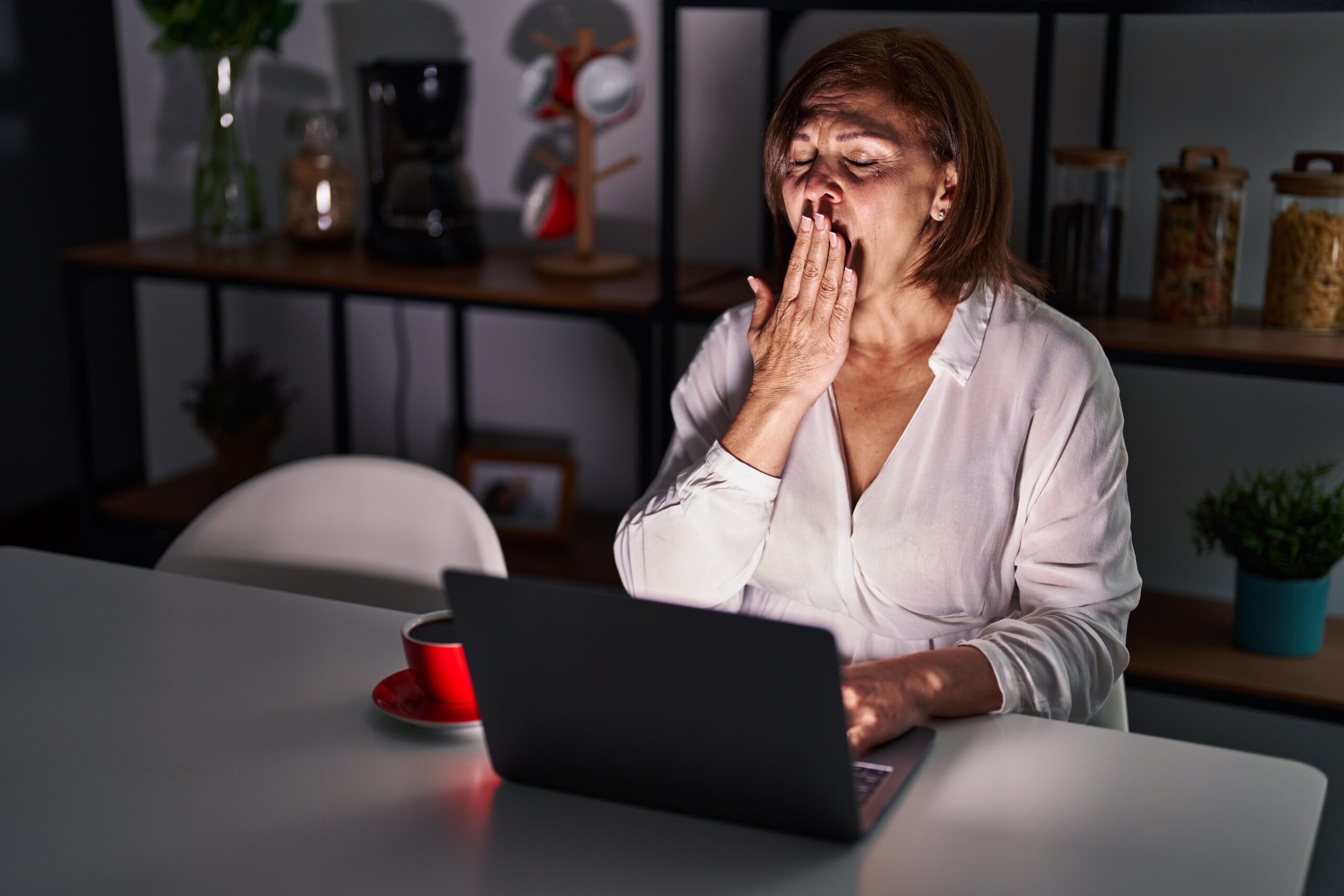Why you’re not sleeping and the cascading health issues that stem from lack of sleep are very individualized.
The National Sleep Foundation stated, “50-70 million adults in the U.S. have sleep disorders and most of them are having sleep apnea.”
Common sleep disorders include:
Insomnia
It affects “at least two-thirds of adults.”*
Insomnia “is characterized by an inability to fall asleep, stay asleep, or get quality sleep, even when someone has the chance for sufficient rest.”*
From a mental health perspective, Dr. Michael Breus, PhD, states “anxiety and depression” are the two standouts “from an insomnia perspective.”
Based on his experience and research, Dr. Breus estimates “75% of insomnia is either anxiety or depression, leaning more towards the anxiety side than towards the depression side.”
Sleep Apnea
The impact: “Global prevalence of obstructive sleep apnea [is] almost 1 billion people.”**
From the physical health side, “obesity really hits hard in sleep apnea.”
Sleep apnea is “A disorder in which a person’s breathing temporarily decreases or stops while they sleep. People with sleep apnea have many episodes of abnormal breathing during a night of sleep and may not get the oxygen that their body needs.”***
Neck size increases as a result of sleep apnea and “people with over a 17.5-inch neck have … an 80% chance of having sleep apnea,” he stated.
How sleep apnea links to hypertension
Sleep apnea and hypertension co-exist. “In terms of breathing, we know that hypertension has a big relationship with sleep apnea as well.”
If you seek help by a sleep expert to get a proper diagnosis, there can be viable options.
“There is hypertension that doesn’t react to medication – about 80% of those people have obstructed sleep apnea.”
The good news?
“Once we fix the sleep apnea, then their hypertension is either able to be controlled by medication or goes away,” Breus said.
Certain neurologic situations also affect that as well:
- Stroke,
- Cheyne-Stokes respiration, and
- Asthma
Restless leg syndrome
It impacts: “Around 35% of people in the 50-60’s age range.”
Why does it happen?
- “It has a lot to do with iron deficiency,
- As well as getting older.”
But it presents in “women specifically with iron issues, particularly during pregnancy or different times during their menstrual cycles.”
So bottom line – will lack of sleep undermine our health?
Breus tells us “Our lower level limit is 6 hours, if you are a reasonably healthy adult. But that number could be way low for someone who is 60.”
It’s tough. It’s not a one-size-fits-all outcome.
So if you have one of the above disorders, the good news is there are experts, treatment and proactive measures to take.
Now to the big question. Will lack of sleep make me sick?
It just depends. Certain contributing factors to be mindful of include:
- Your overall state of health
- Accumulation of sleep debt
- How many hours of sleep you are getting
- And for how long you’ve been getting that amount of shut-eye
Bottom line, Breus said, “6 – 6.5 hours is probably the lowest you would ever want to go. You don’t want it to go for extended periods of time either.”
And it’s not recommended to live on this minimal amount of sleep for more than 1 to 2 weeks.
The goal is to:
- Focus on being as overall healthy as possible (foods, water, movement, sleep, lowering stress, regular Dr. visits)
- Find your chronotype and implement changes
- Say ‘no’ to other activities when you need to get some sleep and try to catch up on the days you have depleted your body
Sleep is uber-important. It’s easy to side-step it when in the thick of life.
I know it’s tough.
But for the sake of your health, see if you can make positive strides towards better sleep / life balance. The benefits can be multifold.
I’m so glad Breus shared his expert insight with us.
Dr. Michael Breus, PhD, is a clinical psychologist and both a diplomate of the American Board of Sleep Medicine and a fellow of the American Academy of Sleep Medicine.
*Levenson JC, Kay DB, Buysse DJ. The pathophysiology of insomnia. Chest. 2015 Apr;147(4):1179-1192. doi: 10.1378/chest.14-1617. PMID: 25846534; PMCID: PMC4388122.
**Benjafield AV, Ayas NT, Eastwood PR, Heinzer R, Ip MSM, Morrell MJ, Nunez CM, Patel SR, Penzel T, Pépin JL, Peppard PE, Sinha S, Tufik S, Valentine K, Malhotra A. Estimation of the global prevalence and burden of obstructive sleep apnoea: a literature-based analysis. Lancet Respir Med. 2019 Aug;7(8):687-698. doi: 10.1016/S2213-2600(19)30198-5. Epub 2019 Jul 9. PMID: 31300334; PMCID: PMC7007763.
This website does not provide medical advice. No material on this site is intended to be a substitute for professional medical advice, diagnosis or treatment. It is for informational purposes only. Always seek the advice of a medical professional or other qualified health care provider on any health matter or question.
